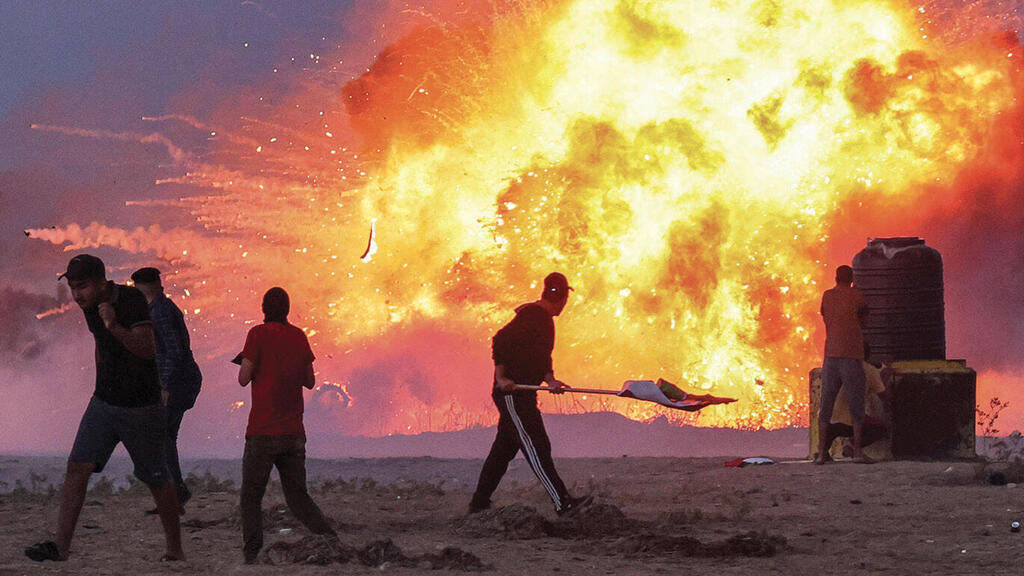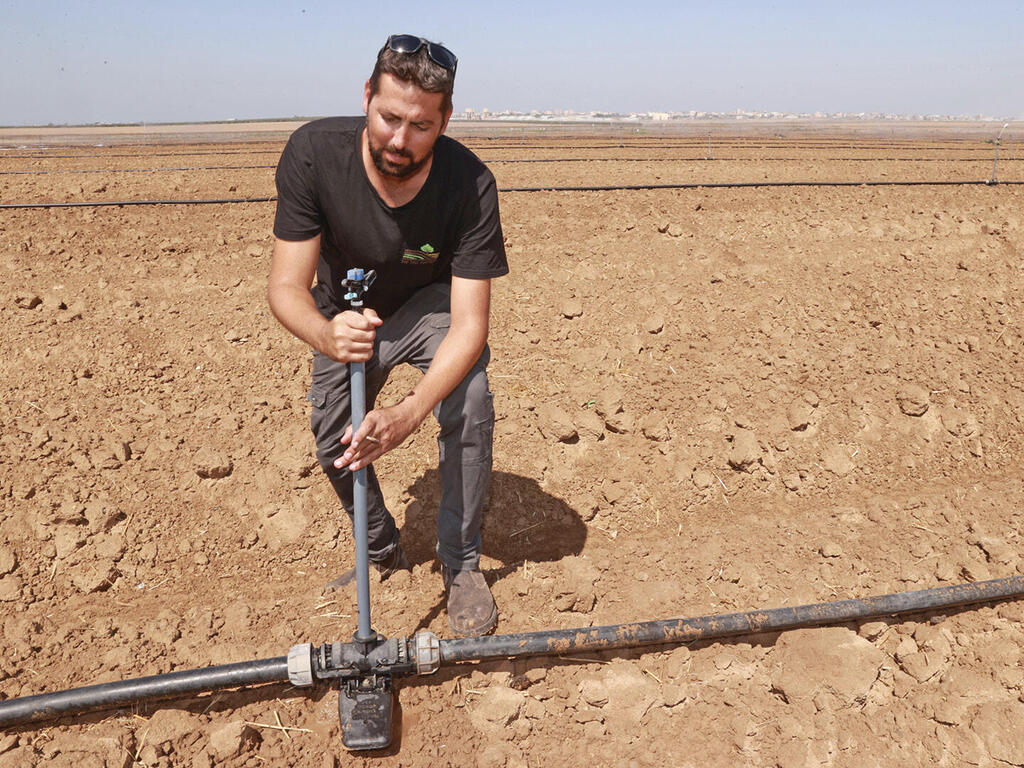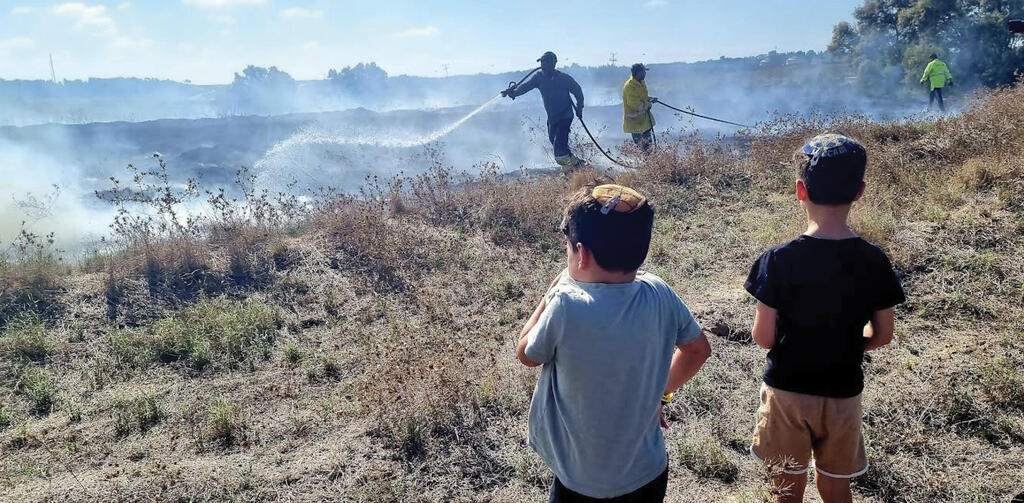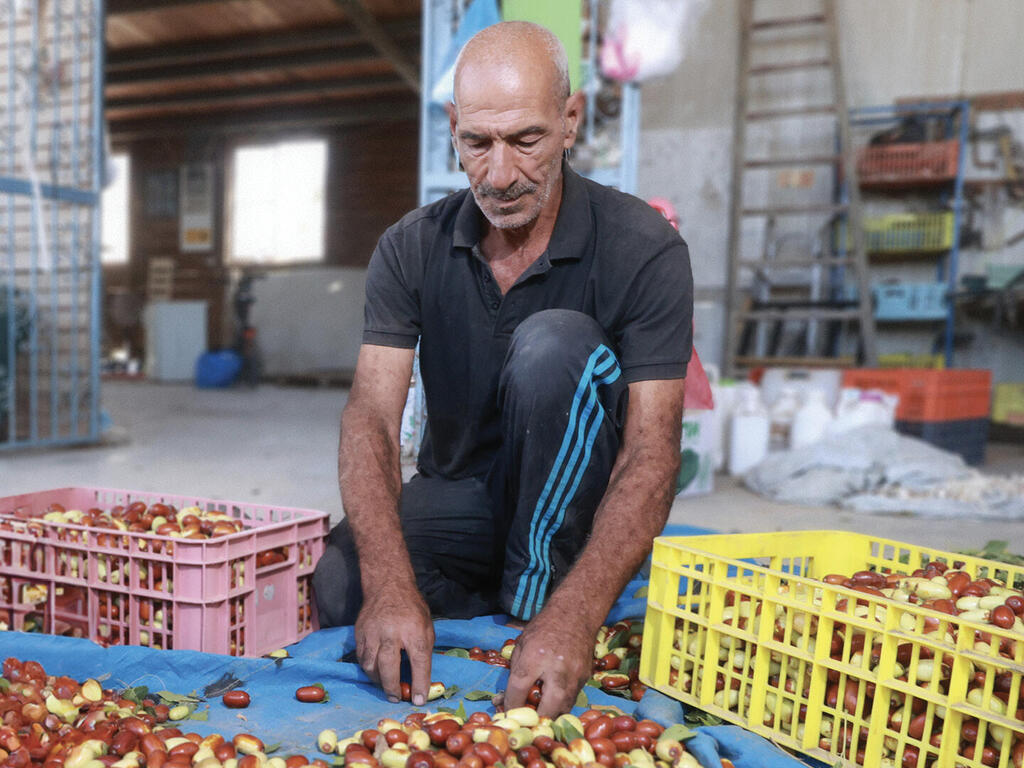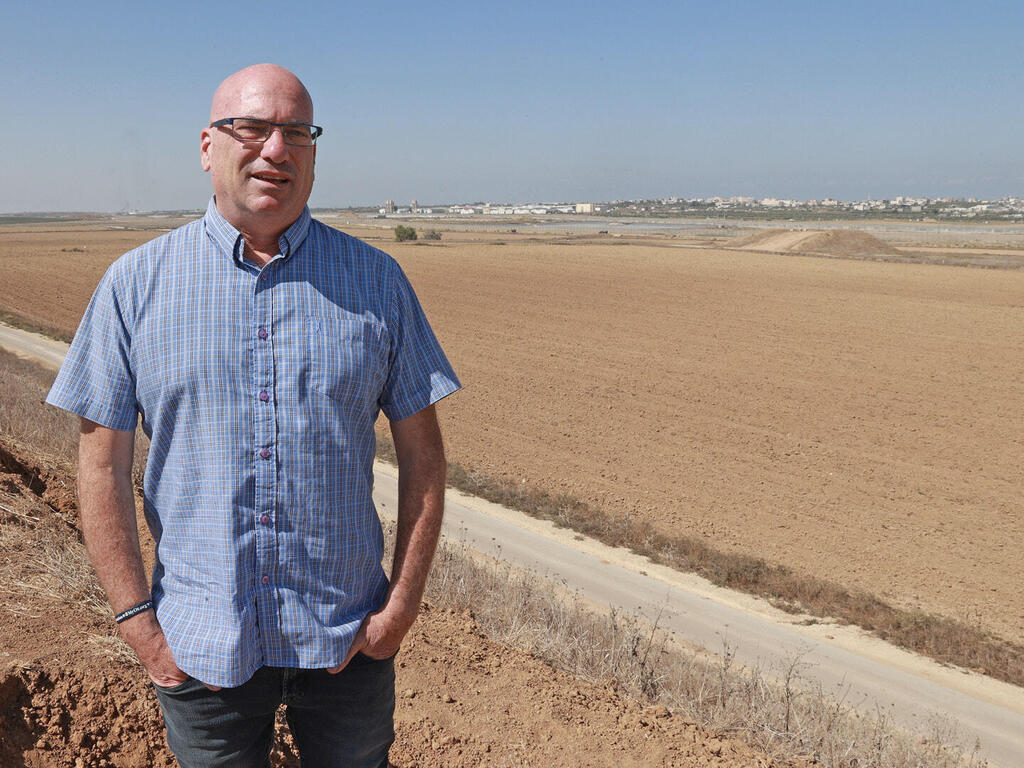Getting your Trinity Audio player ready...
Nahal Oz, a kibbutz located less than a kilometer from the Gaza border, usually only gets wide attention during security escalations and military operations. The kibbutz and its residents stand close enough to the border that they can see the Palestinian riots taking place along the fence, watch the smoke of burning towers billow upwards, and feel the sting of tear gas being carried by the wind while military forces try and disperse the riots.
More stories:
Every afternoon, the entire area gets tense with the possibility of escalations – working the fields in the morning and hearing the sounds of explosions at night. This hellish routine affects everyone living in the Kibbutz, including young children.
Ilan Fiorentino, Nahal Oz’s chief of security, says the kibbutz’s agricultural work didn’t stop despite the ongoing Palestinian riots at the border. “We work as we usually do; we only stop during wars. We can smell some smoke and some tear gas during the afternoons, and then continue as usual.”
'Everyone grew up traumatized here'
Amir Poterman, a 38-year-old father of three who lives in the kibbutz, continues his work to install new irrigation pipes in his fields that grow various seasonal crops. His fields, which he plans to harvest during October and the winter season, are extremely close to the Gaza border. Poterman, however, isn’t worried about the riots and protests, but what may come after them.
"Riots can't kill you, but rockets can. It's a complicated place. On one hand, you’ll find quality housing in the kibbutz, a supportive and caring community, decent education, and a fantastic swimming pool. On the other hand, I cultivated the sunflower fields from which terrorists emerged using a tunnel during Operation Protective Edge, then killed five IDF soldiers nearby. I had a great childhood here, it was peaceful,” Poterman says.
And then?
"Then the first rocket landed. It landed close to the barn I was working at while milking the cows. A week later, another rocket landed. Since then, it’s only gotten worse. Everyone grew up traumatized here.”
While riots continue along the Gaza border, Palestinians have resumed launching incendiary balloons toward Israel that have caused several fires near Israeli communities. "Last week, an incendiary balloon started a fire in a creek close to the kibbutz," says Rafi Bavian, Sha'ar Hanegev Regional Council’s head of security and a resident of Kibbutz Alumim. "25 dunams were burned. And my two kids discovered this fire."
What were they doing there?
"They were with me. We were on our way to give out snacks to IDF soldiers stationed nearby. They’re in second grade, and have heard me speak on the phone about the security situation since they were toddlers. It’s my job, so the situation is very present at home. They can see and smell the burning tires and know that an escalation can follow, so they insist on sleeping in our home’s protected space.”
Do you explain to them the riots on the border can’t harm them?
"It's impossible to fool them. We aren’t made of stone. Any such disruption to routine, any explosion of an explosive charge, even if it's heard from a distance, raises questions, fears, and bad memories. Back when incendiary balloons burned fields near the kibbutz, we didn't inflate balloons for the kids on their birthdays. And it's not just us. Balloons had a bad context. They were perceived as something scary to be cautious of."
Poor in Israel, rich in Gaza
Since the renewal of protests on the border, the Erez Crossing from Gaza into Israel has been closed. Only sick individuals in need of treatment in hospitals in the Gaza Strip, East Jerusalem, and the Green Line areas have been allowed to cross.
A survey conducted by Israel’s Institute for National Security Studies (INSS) showed that the average monthly wage of Palestinian workers in Gaza in 2022 was around 1,040 shekels. Those who receive permits to work in Israel are considered well-off. The survey found that the average income of Gazans employed in Israel in the past year was over 6,300 shekels.
Some 18,500 Gazans work in Israel, with the majority of them working in agriculture in Israeli communities close to Gaza. Their daily wages range from 500 to 600 shekels. Each day the Erez Crossing remains closed means a loss of income of approximately ten million shekels, which support hundreds of thousands of people in Gaza.
While touring one of the Israeli communities close to the border, we found Amin Barrakeh, 58, and his friend Jihad, both residents of the Gaza Strip who work in agriculture. According to their accounts, every Gazan working in Israel supports his family and at least two more families of close relatives.
"My salary from Israel sustains 20 people," Barrakeh says, "We should be thankful for what God provides. A hundred shekels that we bring from Israel are worth 400 shekels in Gaza. A serving of falafel costs one shekel in Gaza."
Carrots out, solar energy in
Our most surprising encounter took place at a dirt mound close to Nahal Oz. It’s an excellent observation point overlooking Gaza and the border, used by the military for patrols in the area. We were passing by when we saw a group of people going up to the observation point.
It turned out the group belonged to Israel’s National Infrastructure Committee, who came to inspect the area, where local regional councils plan on building the largest solar panel field in the country meters away from the border.
Ofir Libstein, mayor of the Sha'ar Hanegev Regional Council, and Gadi Yarkoni, Mayor of the Eshkol Regional Council, seemed enthused about the project.
According to Libstein, Gaza’s 2.1 million residents will turn into three million in less than a decade, "and they won't disappear, we won't disappear either, so we need to think about initiatives that’ll benefit both sides and improve ours and our neighbors’ quality of life. It's the start of a dream of making the area close to the border the country's largest energy producer in about 15 years."
Yarkoni, who leads the project, is even more enthusiastic. "We're talking about a huge field of 17,000 dunams (4,250 acres) next to the border. Instead of farmers risking their lives and working close to the border, we’ll maximize the land’s potential using solar panels.”
What will happen to the local agriculture?
"It won't disappear, it’ll move away from the border fence. The 500-meter-wide area has several fields that get trampled by military vehicles and destroyed during military operations. The solar panels will allow for safer work, and shield the farmers from snipers in Gaza."
Are the kibbutzim on board with this?
"They’re more than willing; they want it. They’ll reap the benefits without incurring any additional risks.”


